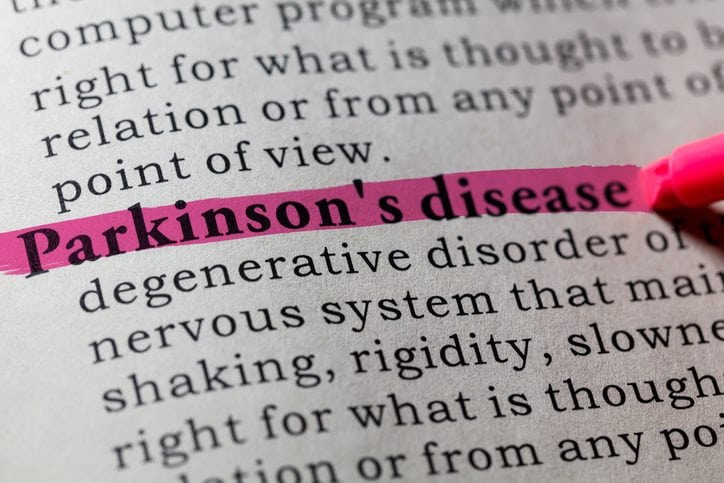It might seem odd that one of the first symptoms of Parkinson’s disease is constipation, but those familiar with the workings of the human gut understand that it holds the key to many bodily functions.
Dr. Duarte Machado, a Parkinson’s disease specialist and co-director of the Hartford HealthCare Ayer Neuroscience Institute’s Chase Family Movement Disorders Center, said research now shows that the gut, not the brain, is where the disease first manifests itself. A protein called alpha-synuclein becomes misfolded in cells in the gut, then travels along the vagus nerve to the brain stem and to the rest of the brain. When these proteins are misfolded, they clump together and cause damage to nerve cells and lead to areas of destroyed brain matter called Lewy bodies.
“Since the first symptom of Parkinson’s is often constipation, it prompted researchers to look at the gut,” he said. “When they did gut biopsies, they saw the misfolded alpha-synuclein protein in the gut lining, so where else could it be coming from?”
The most recently released research — analyzing health records from more than 62 million Americans and presented at the 2019 Digestive Disease Week in California – unveiled another connection, this time with the appendix. The organ, Dr. Machado said, is known to be rich in alpha-synuclein deposits. Having a storehouse for the protein seems to lower the risk of developing Parkinson’s, as the recent research determined those who had their appendix removed were three times more likely to develop the disease later in life.
“The appendix is a piece of the puzzle for sure,” Dr. Machado said. “However, independent of the appendix, inflammatory gut disorders also put people at a higher risk for Parkinson’s.”
The process triggering the protein to misfold and cause Parkinson’s can also enter the body as an environmental toxin such as certain pesticides that are inhaled, he added. Between these factors, he noted that less than 10 percent of people who get the disease have a genetic connection.
Parkinson’s motor symptoms include tremors, trouble with balance and rigid movement. There is no known cure, although exercise may slow the progression of the disease.
The disease has become more and more prominent worldwide, Dr. Machado continued, increasing in prevalence 145 percent from 1990 to 2016. This makes it more common than Alzheimer’s disease, which only increased in prevalence by 117 percent, prompting some to describe it as a Parkinson’s pandemic.
For more information on Parkinson’s disease diagnosis and treatment at the Hartford HealthCare Ayer Neuroscience Institute’s Chase Family Movement Disorders Center, click here.


